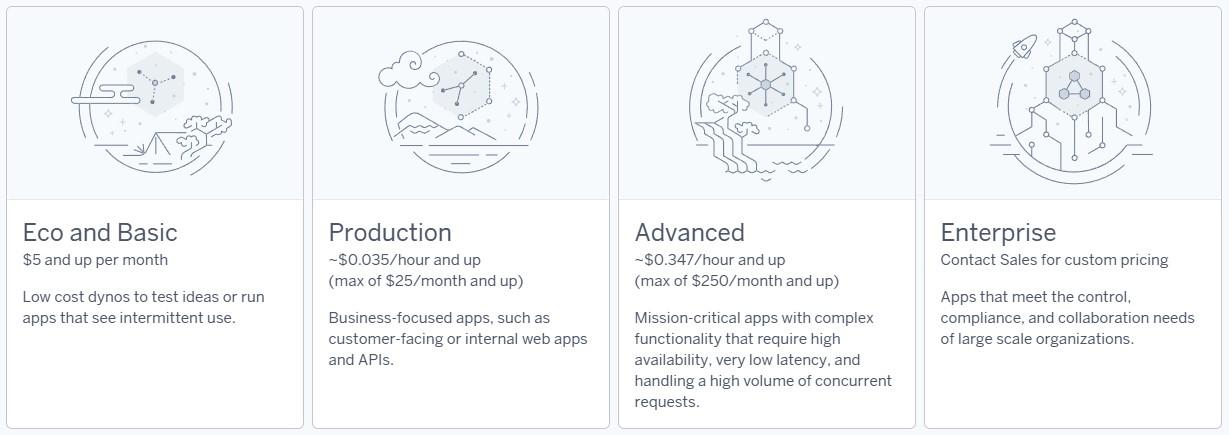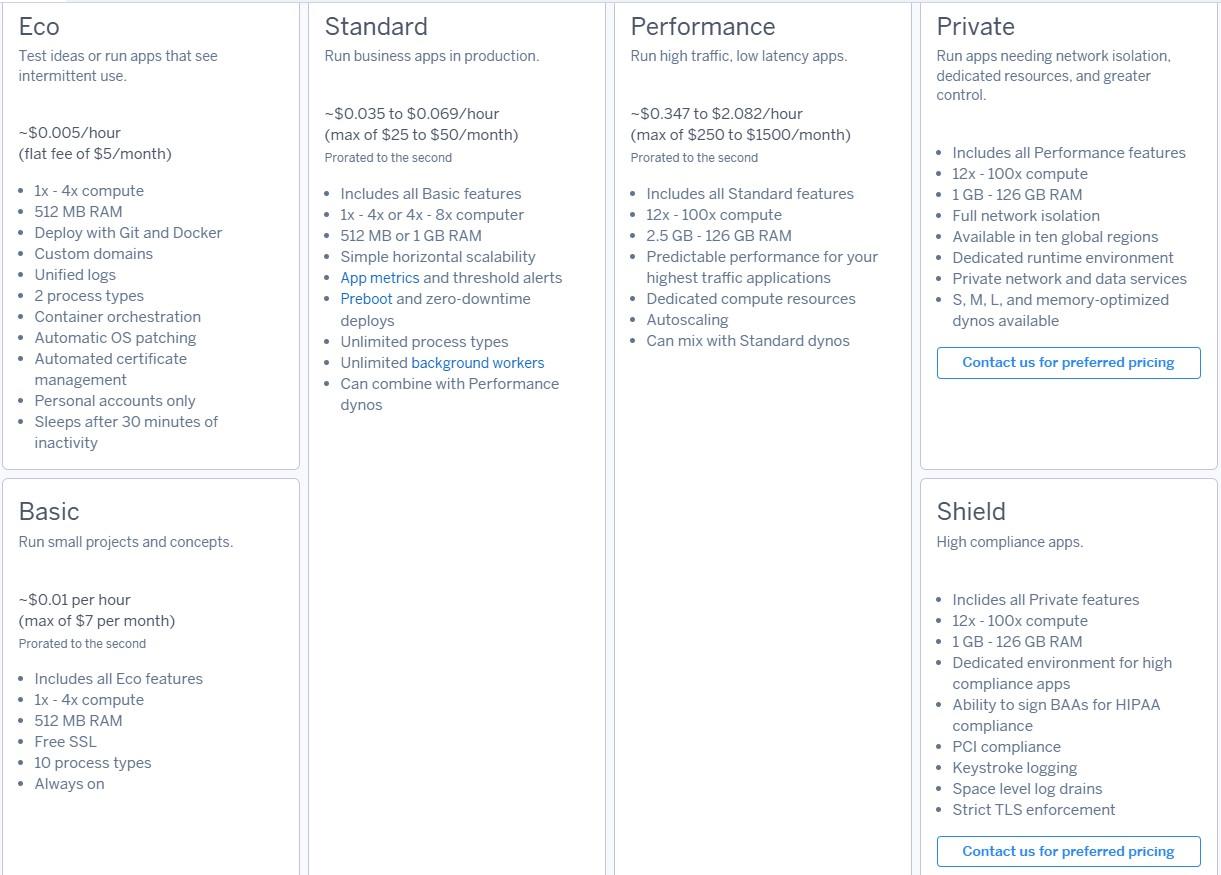
Heroku
A cloud platform as a service (PaaS) that enables developers to build, deploy, and manage applications with ease.
Available Regions
Heroku: A Comprehensive Review and Pricing Guide
Are you looking for a platform to build, deploy, and manage your applications with ease? Heroku is a popular cloud platform that allows developers to focus on coding, while it handles the underlying infrastructure. In this article, we’ll dive into the features, pricing, and highlights of Heroku, helping you decide if it’s the right fit for your business.
What is Heroku?
Heroku is a cloud platform as a service (PaaS) that enables developers to build, deploy, and manage applications with ease. With Heroku, you can focus on writing code, while the platform handles the underlying infrastructure, scaling, and maintenance.
Key Features:
- Easy Deployment: Deploy your application with a single command, using Heroku’s Git-based deployment process.
- Scalability: Scale your application up or down as needed, with Heroku’s automatic scaling feature.
- Managed Infrastructure: Heroku manages the underlying infrastructure, including servers, storage, and databases.
- Add-ons: Choose from a wide range of add-ons, including databases, caching, and messaging services.
- Security: Enjoy robust security features, including SSL encryption, firewalls, and access controls.
Pricing:
Heroku offers a flexible pricing plan that scales with your business needs. Choose from the following options:
- Eco and Basic: $5 and up per month
- Production: max of $25 per month, excluding add-ons
- Advanced: max of $250 per month, excluding add-ons
- Enterprise: Custom plans for large-scale businesses, with dedicated support and advanced features.


Highlights:
- Ease of Use: Heroku’s intuitive interface makes it easy to deploy and manage applications, even for non-technical users.
- Scalability: Scale your application up or down as needed, with Heroku’s automatic scaling feature.
- Add-ons: Choose from a wide range of add-ons, including databases, caching, and messaging services.
- Community: Join a large and active community of developers, with extensive documentation and support.
Pros and Cons:
Pros:
- Easy to use and deploy applications
- Scalable and managed infrastructure
- Wide range of add-ons and integrations
- Large and active community
Cons:
- Limited control over underlying infrastructure
- Can be expensive for large-scale applications
- Limited support for non-standard languages and frameworks
Heroku vs. Competitors:
Heroku stands out from competitors like AWS, Google Cloud, and Microsoft Azure by offering a more developer-friendly interface and a wide range of add-ons and integrations. While these providers offer raw infrastructure, Heroku adds a layer of management and support, making it easier for developers to build and deploy applications.
Conclusion:
Heroku is a solid choice for developers looking for a cloud platform that simplifies the process of building, deploying, and managing applications. With its ease of use, scalability, and wide range of add-ons, Heroku is an excellent option for businesses of all sizes. While it may not offer complete control over underlying infrastructure, its benefits far outweigh the drawbacks. Give Heroku a try today and discover the power of cloud development!